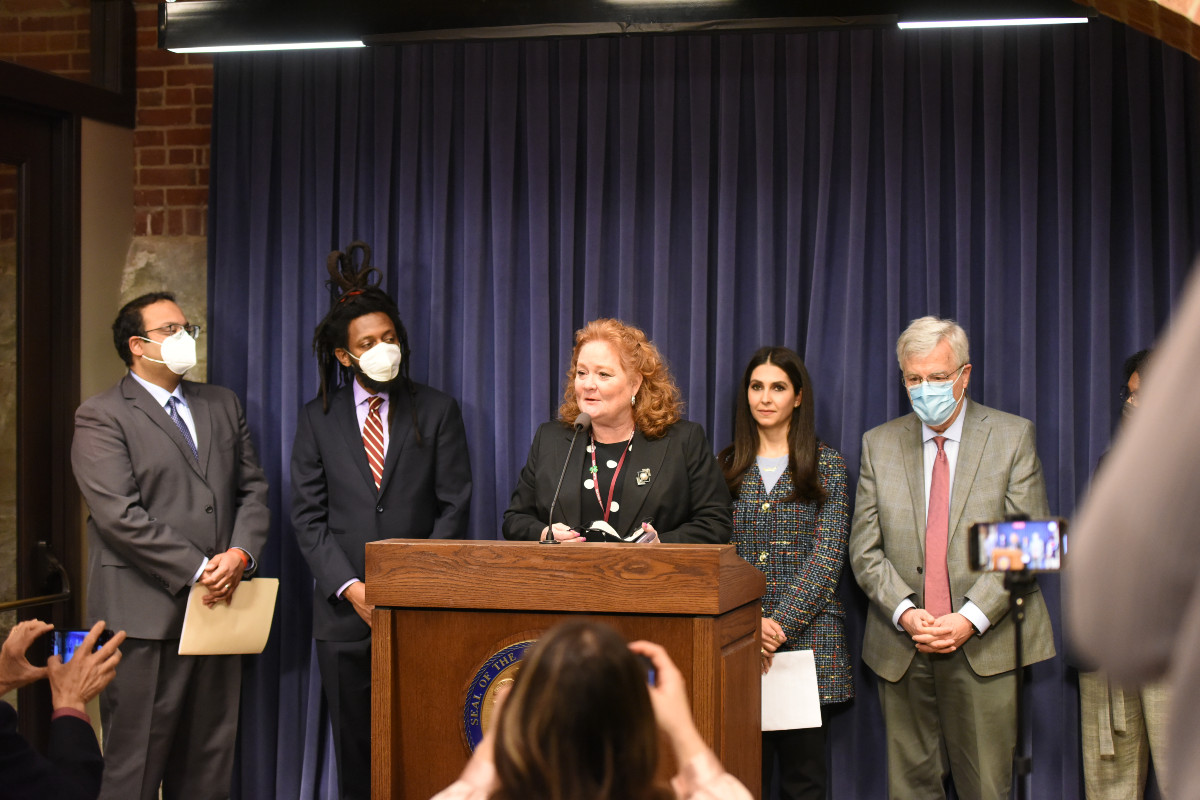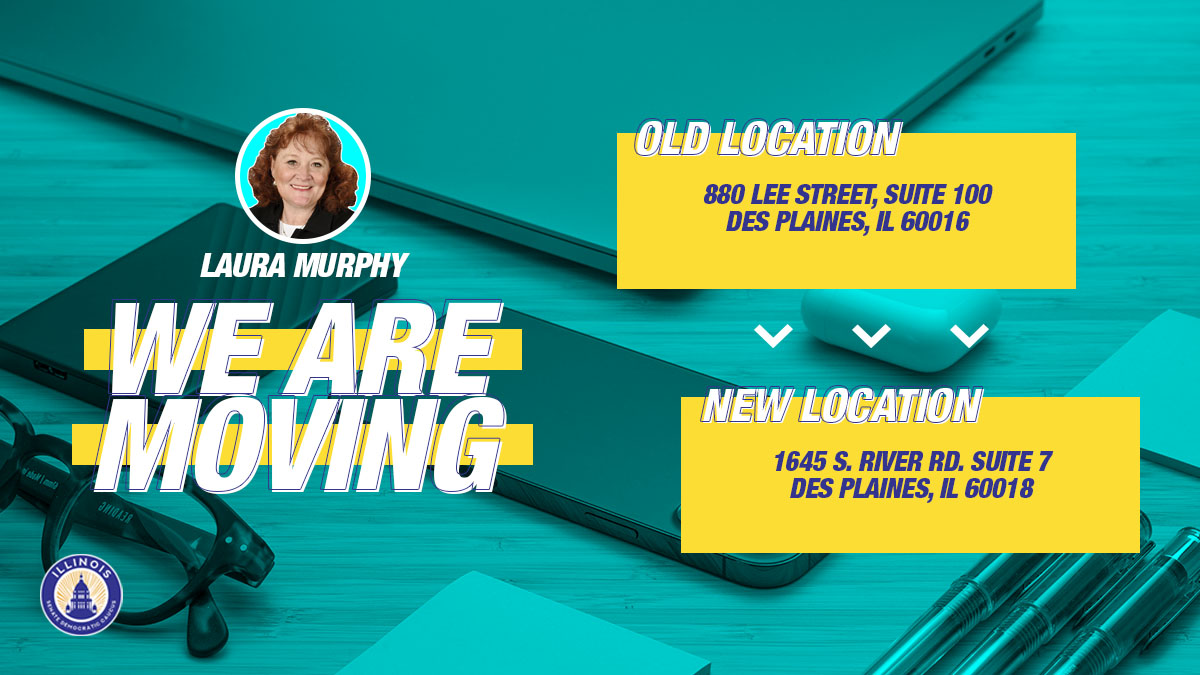Murphy celebrates the foundation of the Illinois Assyrian Caucus
- Details

SPRINGFIELD –State Senator Laura Murphy (D-Des Plaines) was proud to stand with her colleagues to announce the founding of the Illinois Assyrian Caucus at a press conference on Wednesday, as well as her role as a founding member the group.
“The district I represent is strengthened by its diverse population, including a large community of Assyrian immigrants” Murphy said. “Forming this caucus will help us highlight issues that are concerning to the Assyrian-American community and represent them like they deserve.”
Assyrians are a transnational ethnic group indigenous to parts of Iraq, Iran, Turkey and Syria. Over 80,000 Assyrian-Americans live in Illinois, and they have formed vibrant cultural communities throughout the state. To ensure this community is represented best in government, Murphy and her colleagues formed the Assyrian caucus.
The group is made up of eighteen founding members with bipartisan support and is committed to learn about the challenges Assyrian-Americans face to better address these issues through their work as Senators. Senator Murphy is hopeful that this caucus will give Assyrian-Americans a greater voice in state government.
“For a community that has been historically oppressed, it is especially important to make sure they are being heard moving forward and that’s being reflected in our initiatives,” Murphy said. “I want to make sure that everyone in my district feels welcome and represented by their government.”
Senator Murphy and the rest of the Assyrian caucus look forward to supporting Assyrian-American interests as the legislative session continues.
Pace is hiring!
- Details
Pace has several job opportunities to advance your career in the public transportation industry. Learn more about what opportunities are available at https://www.pacebus.com/careers

Senator Murphy on Madigan indictment: We must root out corruption in state government
- Details
SPRINGFIELD –Following the indictment of former Speaker of the House Michael Madigan, State Senator Laura Murphy (D-Des Plaines) released the following statement:
“These allegations are disheartening. Behavior like this will not be tolerated in the legislature. As a Senator, I take my oath to public service and ethical conduct seriously. Members of the General Assembly are held to a higher standard and we must continue to work together to root out corruption so we can begin to restore the public’s trust in government.”
Senator Murphy’s district office to move March 1
- Details

Senator Murphy’s new district office address is 1645 S. River Rd., Suite 7, Des Plaines, IL 60018. You may also reach her office by calling 847-718-1110, or online here.
“Senate district offices typically assist constituents with state-related programs, such as unemployment insurance, SNAP benefits, and child support,” Murphy said. “I hope people in my community will take advantage of these resources at our new office location.”
“I regret moving from Downtown Des Plaines, but I’m encouraged by the continued redevelopment of the downtown area,” Murphy said. “I look forward to continuing to serve residents of the 28th District at our new location on River Road.”
More Articles …
Page 35 of 137








